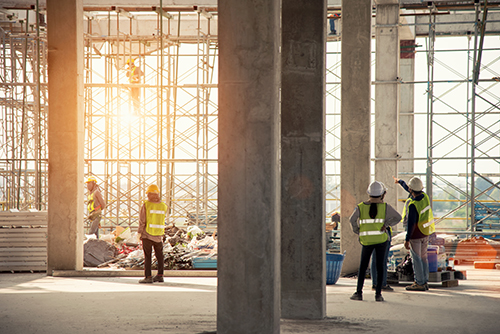 Fresh from his swearing in on Inauguration Day, President Joe Biden went to the White House and issued a long-overdue proposal for reforming the broken U.S. immigration system. The echoes of the fireworks that evening had barely faded before Republicans began raising objections to it.
Fresh from his swearing in on Inauguration Day, President Joe Biden went to the White House and issued a long-overdue proposal for reforming the broken U.S. immigration system. The echoes of the fireworks that evening had barely faded before Republicans began raising objections to it.
Among other things, the plan would create an eight-year path to citizenship for the 11 million undocumented immigrants already living and working in the U.S. and expedite legal status to farmworkers and those brought here as children, often called Dreamers.
But Biden needs a different strategy to get the measure through the Senate, where at least 10 Republicans will have to support it to gain the 60 votes required for most legislation. That may be difficult, because when Democrats say “path to citizenship,” many Republicans hear “amnesty.”
This is unfortunate. Biden’s proposal would do a lot of good, such as codifying the legal status of Dreamers and restoring the Temporary Protected Status classification for those for whom returning to their home countries is unsafe.
While Republicans are hesitant to embrace comprehensive reform, they are more willing to take incremental steps toward it, starting with legalizing Dreamers.
As the co-owner of a construction company that’s been in business for more than 80 years, I have seen the pitfalls of the current immigration system. Today, many construction workers operate in the shadows, getting paid in cash, without receiving safety training. Their employers pay no payroll taxes. While this makes buildings cheap, it depresses wages and contributes to a lack of training and quality that will ultimately cripple our industry.
Make no mistake, my industry desperately needs workers, and while we have spent decades cultivating native-born employees through high-school internships and other programs, the bulk of our labor force today — as it always has been — is immigrants and their children.
I understand concerns about border security and amnesty. But our immigration system has failed to keep pace with labor demand, not just for industries like mine, but also for professionals in high-tech fields and medicine.
That’s why I have joined with several bipartisan groups in advocating a proposal called ID and Tax. It would improve national security by issuing a tamper-proof ID for undocumented immigrants who have been in the U.S. for a specified number of years (more than 60 percent have lived here for a decade or more). The ID would allow them to remain in the U.S. and work legally without fear of deportation. They would not be eligible to vote or receive food stamps. But they would have the right to apply for a drivers’ license and buy insurance.
They also could enter into the existing E-Verify system already used by many companies so they would be able to work for employers who could legally hire them as employees, rather than contractors, and pay their payroll taxes. This, by the way, is currently a requirement for workers to receive visas, and it would lower the need to bring in more workers from abroad before filling jobs with the 11 million people already here.
It would not include a path to citizenship at this time, although that could certainly become a part of a bipartisan bill as a more comprehensive plan is developed. But Tax and ID doesn’t need to wait on legislation. It could be implemented immediately by executive order. All the tools are already in place.
It appeals to both sides of the aisle. It’s not mass deportation, and it’s not amnesty. Of course, the undocumented, having been subjected to the constant threat of deportation for years, would need to know they could trust the government before they would be willing to participate in the ID and Tax program. That’s why Congress must first legalize the 800,000 Dreamers, a measure that already has widespread support among the public and many members of Congress.
The senators from my home state of Texas should lead the way. They understand how critical immigrants are to economic growth. Indeed, our governor declared many jobs that often are done by undocumented workers to be “essential” during the COVID-19 pandemic. And many undocumented workers filled a similar, if unheralded, role after recent natural disasters such as Hurricane Harvey. Texas, more than any other state, has the most to gain by breaking the 30-year impasse surrounding immigration.
We can’t risk losing another chance to reform our broken immigration system. We can’t wait while well-intentioned comprehensive reform efforts simmer in the overheated stew of Washington politics. ID and Tax is a simple, common sense, middle-of-the-road solution that is needed now. As our economy recovers from the pandemic, ID and Tax can clear the way for immigrants — as they have for 150 years — to play a vital role in restoring our economic prosperity.


